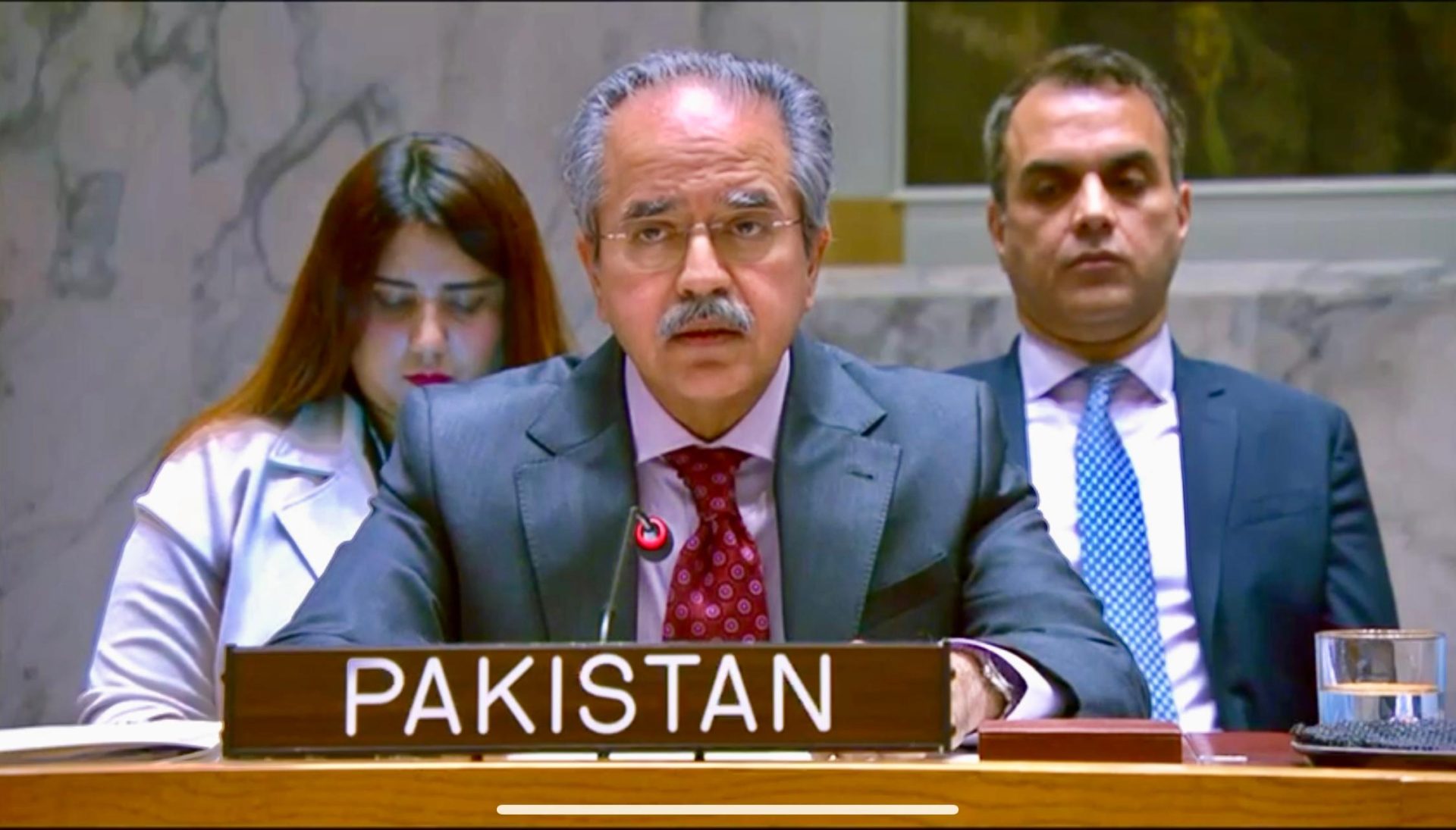
United Nations, August 11, 2025(Kamran Raja): Pakistan has urged the international community to safeguard the oceans as zones of peace, prosperity, and inclusive development, proposing a comprehensive global cooperation framework to address emerging maritime security challenges.
Speaking at the UN Security Council High-Level Open Debate on “Maritime Security: Prevention, Innovation, and International Cooperation to Address Emerging Challenges”, Pakistan’s Permanent Representative to the UN, Ambassador Asim Iftikhar Ahmad, underscored the UN Convention on the Law of the Sea (UNCLOS) as the cornerstone of ocean governance, but warned against troubling trends, including unchecked naval build-ups, militarization of strategic waters, and exclusionary maritime arrangements.
“This mindset undermines inclusivity, corrodes trust, and destabilizes the balance of the seas,” Ambassador Asim said, stressing that maritime security is integral to global peace and stability and must not become a theater for strategic rivalry.
On behalf of Pakistan, he proposed:
Capacity Building for Developing States through targeted technology transfer, maritime domain awareness tools, and joint training.
A Global Early-Warning & Rapid-Response Mechanism to tackle piracy, trafficking, illegal fishing, and maritime accidents in real time.
Collaborative Governance of Emerging Maritime Technologies such as AI and autonomous systems, to prevent conflict at sea.
Regional Dialogue & Trust-Building to deter hegemonic designs and secure open sea lanes.
Integration of Climate Resilience into maritime strategies to protect coastal communities and sea-based trade.
Highlighting the role of emerging technologies like AI, satellite monitoring, and analytics, he called for responsible innovation with equitable access and safeguards, noting that climate change is intensifying maritime risks. Pakistan, he said, supports embedding the climate–ocean–security nexus into inclusive global frameworks.
Ambassador Asim described the Arabian Sea as Pakistan’s “fifth neighbour” and central to the country’s strategic and economic vision. Positioned at the crossroads of major sea lanes, Pakistan serves as a key trans-shipment hub and gateway linking Central Asia to global markets.
He noted Pakistan’s active role in global maritime security through participation in Combined Maritime Forces Task Forces 150 and 151, conducting regular Regional Maritime Security Patrols, and hosting the multinational Exercise AMAN – which in February brought together over 60 navies to build cooperation, trust, and interoperability. Domestically, initiatives such as the Joint Maritime Information Coordination Centre, satellite monitoring with SUPARCO, AI-driven surveillance, and advanced vessel tracking have enhanced responses, saved over 1,800 lives, and supported the fight against transnational crimes at sea.